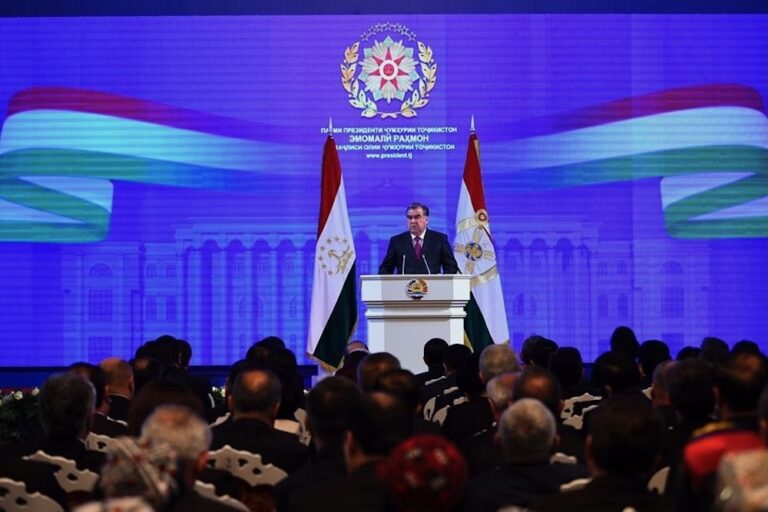(Adil Soz/IFEX) – The following is a 31 October 2004 statement by the National Association of Independent Mass Media of Tajikistan (NANSMIT), an Adil Soz partner: The National Association of Independent Mass Media of Tajikistan expresses its concern about a long delay in resolving issues related to broadcast licensing. According to the law on amendments […]
(Adil Soz/IFEX) – The following is a 31 October 2004 statement by the National Association of Independent Mass Media of Tajikistan (NANSMIT), an Adil Soz partner:
The National Association of Independent Mass Media of Tajikistan expresses its concern about a long delay in resolving issues related to broadcast licensing.
According to the law on amendments to the law on TV and radio broadcasting, adopted in February 2004, legal entities operating in the area of TV and radio broadcasting require a license. Article 12 of the law stipulates that the Tajik Government has a right to determine procedures for issuing, renewing, suspending and revoking a broadcast license. In light of the law on licensing, adopted shortly after the above-mentioned law on amendments, the Tajik Government is considering a new regulation concerning the practice of issuing licenses.
NANSMIT has always advocated the creation of an interdepartmental or independent body to administer these issues. We hoped that the Government would involve experts in developing and adopting the new regulation, following the interests of the TV and radio companies in Tajikistan. However, this has not happened so far. The old provision establishing a procedure for licensing is not valid after the adaptation of the new law on amendments to the law on TV and radio broadcasting, and this has resulted in several months of delay in solving licensing problems.
Society needs new, alternative information sources on the eve of the February 2005 parliamentary elections. NANSMIT calls upon the Government of the Tajik Republic to speed up development and adoption of the new regulation, which will authorise a licensing body and procedures. In turn, we are ready to collaborate with the Government to help bring the regulation in line with international standards.


